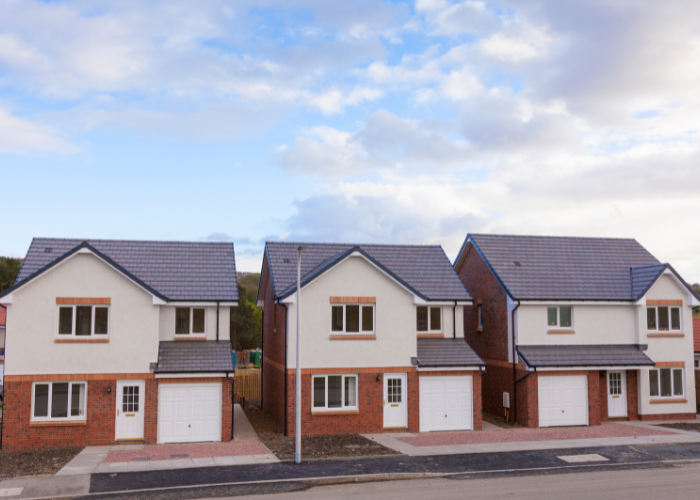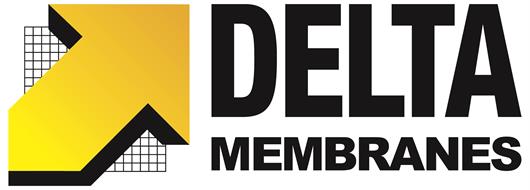 Add My Company
Add My Company
The Flood and Water Management Act (SuDS)

The Flood and Water Management Act Schedule 3 (SuDS) and Structural Waterproofing
A notable shift is on the horizon, the implementation of The Flood and Water Management Act Schedule 3 is a significant regulatory change for England’s construction industry. This will mandate the use of Sustainable Drainage Systems (SuDS) in numerous new and retrofit developments. Underscoring the increasing emphasis on environmental sustainability in construction and urban planning.
Kevin Dodds, an expert Waterproofing Design Specialist at Delta Membrane Systems Limited, sheds light on The Flood and Water Management Act Schedule 3 and its forthcoming modifications.
It is crucial for specifiers to understand the significance, particularly for structural waterproofing projects.
It is important for specifiers working on property development projects to have a clear understanding of the new requirements of Schedule 3 and how their responsibilities will likely be impacted. By understanding Schedule 3, specifiers will be better positioned to select the correct solutions that fall in line with regulations and help mitigate their project’s impact on the environment. The recently passed legislation will eliminate the automatic legal right to link surface water drainage to nearby sewage infrastructure. Instead, the enforcement of Schedule 3 will mandate the use of Sustainable Drainage Systems (SuDS) for any developments that exceed 100m² in size (both new developments and renovation work on multiple dwelling units).
Schedule 3 offers a guideline for the sanction and implementation of drainage systems, including a sustainable drainage system approval body within unitary and county councils. It emphasises universal standards for the design, construction, operation, and maintenance of these systems throughout the development’s lifespan. Moreover, it stipulates that the permit to link surface water runoff to public sewers is contingent upon prior approval of the drainage system before commencement of construction work.
In line with the implementation of Schedule 3 regulations, there is an anticipated surge in the need for innovative drainage systems. These state-of-the-art systems will be pivotal in meeting the prescribed requirements. The rise in demand is a testament to the increasing awareness of efficient water management.
What are sustainable drainage systems?
Sustainable Drainage Systems, or SuDS, is a term that refers to a collection of water management practices that are designed to align closely with natural water processes. These systems aim to manage rainfall and reduce the potential impact of new and existing developments with respect to surface water drainage discharges. Incorporating SuDS into your projects can mitigate flood risks, improve water quality, and enhance the amenity and biodiversity value of the environment.
SuDS, or Sustainable Drainage Systems, are a natural approach to managing drainage in and around properties and other developments. This effective method reduces the risk of flooding by slowing and holding back rainwater runoff, allowing it to seep naturally into the ground or flow into watercourses. SuDS also provide multiple benefits such as improving water quality, encouraging wildlife and eco-systems, creating healthier, more sustainable communities.
Sustainable Drainage Systems are engineered to imitate natural processes, managing precipitation proximally to its point of origin. These systems are adept at conveying surface water, and function to decelerate runoff, thus attenuating it prior to introduction into watercourses. This approach efficiently mitigates the potential for watercourse contamination and flooding, whilst promoting environmentally responsible water management.
SuDS offer a more sustainable approach compared to conventional site drainage techniques. Their design is inspired by natural water management processes, making them more environmentally friendly:
- Mitigate the effects of urbanisation
- Mitigates flooding events
- Manages runoff volumes and flow rates from hard surfaces
- An opportunity to utilise runoff, subsequently protecting and enhancing water quality by reducing pollution
- Maintain natural flow regimes in watercourses
- More considerate of the environment as well as the needs of local communities
- Creating appealing habitats for wildlife
- Encourages evapotranspiration from vegetation and surface water
- Promotes natural groundwater or aquifer recharge where suitable.
Ultimately, these measures contribute to creating superior environments for living, working, and recreational activities.
Always happy to help
For any further advice and guidance on the topic of Sustainable Drainage Systems (SuDS), please reach out – Call us today on 01992 523 523 or email info@deltamembranes.com.
For more information on The Flood and Water Management Act (SuDS) talk to Delta Membrane Systems Ltd - Basement waterproofing

